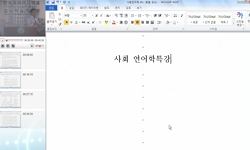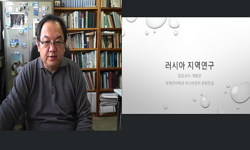Russian Federation, being de jure and de facto linguistically diverse multilingual country, can be described, at the same time, as being under a strong influence of monolingual language ideology, with Russian totally domineering in most public spheres...
http://chineseinput.net/에서 pinyin(병음)방식으로 중국어를 변환할 수 있습니다.
변환된 중국어를 복사하여 사용하시면 됩니다.
- 中文 을 입력하시려면 zhongwen을 입력하시고 space를누르시면됩니다.
- 北京 을 입력하시려면 beijing을 입력하시고 space를 누르시면 됩니다.


Treatment of and Attitudes Towards ‘Other’ Languages in Modern Russia: Evidence from Metalinguistic Discourse
한글로보기https://www.riss.kr/link?id=A108743509
-
저자
남혜현 (연세대학교) ; Kapitolina Fedorova (European University at St. Petersburg)
- 발행기관
- 학술지명
- 권호사항
-
발행연도
2023
-
작성언어
English
- 주제어
-
등재정보
KCI등재,SCOPUS
-
자료형태
학술저널
-
수록면
92-105(14쪽)
- DOI식별코드
- 제공처
-
0
상세조회 -
0
다운로드
부가정보
다국어 초록 (Multilingual Abstract)
Russian Federation, being de jure and de facto linguistically diverse multilingual country, can be described, at the same time, as being under a strong influence of monolingual language ideology, with Russian totally domineering in most public spheres. Minority languages and especially languages of migrants lack official recognition and support, and their speakers often have to face prejudices and negative stereotypes. The paper aims at revealing language ideology prevailing in modern Russia through analysis of attitudes to languages other than Russian as they are expressed in discourse about language, i.e. metadiscourse. When approaching it, it is important to distinguish state discourse (manifestation of official language policy) and public discourse (collective attitudes towards certain sublanguages and their users expressed more or less directly). The analysis shows that over the past two decades, official language ideology in Russia has shifted from guaranteeing linguistic equality and diversity to having an emphasis on unity and purity and giving support to the Russian language. This reorientation is realized through status planning, corpus planning, and acquisition planning. At the level of public discourse, analysis of collective attitudes towards the languages used by non-native speakers demonstrates that a significant part of the Russian-speaking population express negative attitudes towards non-native speakers and their poor Russian language skills, which once again confirms that there is dominant monolingualism and purism in public discourse. However, language practices in Russia are gradually becoming more diverse which can become a challenge for monolingualism and purism in future.
동일학술지(권/호) 다른 논문
-
- 한양대학교 아태지역연구센터
- Zhumashov Yerkebulan
- 2023
- KCI등재,SCOPUS
-
- 한양대학교 아태지역연구센터
- Bahry Stephen A.
- 2023
- KCI등재,SCOPUS
-
Language situation in dynamic Eurasian region: Introducing the special issue
- 한양대학교 아태지역연구센터
- Fedorova Kapitolina
- 2023
- KCI등재,SCOPUS
-
Iran’s Foreign Policy toward Tajikistan: Exploring the Effective Factors
- 한양대학교 아태지역연구센터
- Karimi Mahdi
- 2023
- KCI등재,SCOPUS




 KCI
KCI






